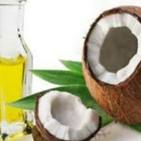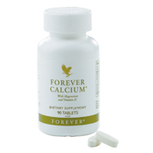
A healthy alternative to vegetable oil is high-quality virgin coconut oil.
|
0 Comments
 Phosphoric acid, (major ingredient in soda pop) has been shown to interfere with your body's ability to use calcium. This may lead to softening of teeth and bones and osteoporosis. Osteoporosis Thirty years ago, most people thought osteoporosis and the broken bones it can cause were a part of normal aging. That view has changed. Researchers today know a lot about how you can protect your bones throughout your life. We have learned that getting enough calcium, vitamin D and regular exercise are important for your bones. Eating fruits and vegetables is also good for bone health. On the other hand, eating poorly, smoking, drinking too much alcohol or not exercising can cause bone loss and osteoporosis. You’re never too young or too old to improve the health of your bones. Osteoporosis prevention should begin in childhood. But it shouldn’t stop there. Whatever your age, the habits you adopt now can affect your bone health for the rest of your life. Now is the time to take action. Phosphoric acid
1. Phosphoric acid is a clear, colorless, odorless liquid with a syrupy consistency. 2. Phosphoric acid is used as an acidifying agent to give colas their tangy flavor. 3. Due to the use of phosphoric acid, cola is a actually more acid than lemon juice or vinegar. The vast amount of sugar acts to mask and balance the acidity. 4. Phosphoric acid also goes by E338, orthophosphoric acid, and phosphoric(V) acid. 5. Food-grade phosphoric acid is a mass-produced chemical, available cheaply and in large quantities. 6. Phosphoric acid is commonly used for rust removal. 7. Phosphorus-containing substances occur naturally (0.1%-0.5%) in foods such as milk, meat, poultry, fish, nuts, and egg yolks. 8. Phosphoric acid has been linked to lower bone density in some epidemiological studies, including a discussion in the American Journal of Clinical Nutrition. 9. Opposing studies showed the opposite – that *low* intake of phosphorus leads to lower bone density. 10. According to the Center for Science in the Public Interest (CSPI), a consumer watchdog group not affiliated with the food industry, only a small fraction of the phosphate in the American diet comes from additives in soft drinks. Most comes from meat and dairy products.  Yoga is a good exercise to promote flexibility and proper breathing. Yoga teaches you how to breathe properly and move your body to improve strength, flexibility and endurance. Studies have also shown that women who participate in yoga experience less hormonal swings than those who do not in some fashion. Improve Flexibility – The Main Goal of Most Athletes!
An athlete with little flexibility is no athlete at all! Both beginners and professional athletes require flexibility training exercises, to keep their body flexible and active. Yoga exercises induce flexibility to the human body. Most of the stretching exercises, which are already part of routine of athletes, are also part of yoga. These yoga exercises prevent athletes from getting injured and make their body structure more flexible and restraint from injuries. Yoga helps in flexing the body parts that can be difficult to stretch in normal exercises. For example, the core and the torso, but the “bow and cobra” yoga poses make stretching these parts much easier. Yoga can greatly decrease muscle tension. A research at Springfield College in Springfield, Massachusetts proved that regular yoga training reduced muscle sourness in women who had performed some sort of different workouts.
Yoga teaches Pranayama or proper breathing techniques under stressful postures. Most importantly practicing yoga daily can make you an expert in breathing properly no matter what the situation demands. Deep and calm breathing reduces anxiety, fear and nervousness; this triad is known to be the main cause for lowering self-confidence in a person.
Yoga also reduces depression and causes an overall feeling of contentment to develop. This is highly crucial to build up self confidence after one looses a game. Yoga does this by balancing hormones and nerves in a person. Emotions, when felt in the right way, can also become a source of energy for an athlete.
Basically, yoga teaches a person to gather all their energy from the body and use it towards attaining their goal. It can make athletes realize they have more energy than they thought they had. Some of the other benefits of yoga for athletes are – it prevents injury, speeds up recovery, improves body control, promotes muscular symmetry, alleviates back aches, raises energy level, sharpens the mind, increases vision and improves sleep. In a nutshell, yoga should be part of routine of an athlete. It has often proven to be fruitful in making good athletes better. So, if you’re planning to break records on your play field, join a yoga class in your area today! 100 percent false labeling - and it's legal! by: Craig Stellpflug  (NaturalNews) In yet another wave of "truth in advertising" lawsuits, embattled Tropicana is now fending off approximately 20 lawsuits at once because of blatant truth-slanting labeling that misleads consumers to think that they are buying fresh, unadulterated, good-for-you OJ. The FDA oversees packaged food labeling and has no definition of what is "natural." As long as a food labeled "natural" doesn't contain added color, artificial flavor or synthetic substances, the FDA doesn't care. But the consumers do! Tropicana markets its orange juice as "fresh from the grove" and calls its product "great-tasting 100 percent orange juice," all the while claiming that it has fully complied with labeling laws. Can this be true when Tropicana's heavily processed, aseptic, oxygen deprived, tank-stored juice adds chemically engineered flavor packs - ethylbutyrate to the sluice of juice? If they didn't add ethylbutyrate to the juice it would taste flat and no one would buy it. I guess if they put toxic ethylbutyrate added to improve devitalized flavor no one would buy that either. "It's not simply orange, it's complicated orange," says Alissa Hamilton, author of "Squeezed: What You Don't Know About Orange Juice." New wave of consumer lawsuits. These Tropicana lawsuits are just the latest to be filed in a new wave of lawsuits over "all natural" label claims. Recently, a number of national brands have been sued over deceptive labeling. Coca Cola, Snapple, Tostitos, SunChips, and Ben & Jerry's ice cream, to name a few, have found themselves on the defendant side of the law. Greedy companies looking to milk the cash-cow on consumer driven natural products are labeling everything they can "all natural" even when the products are just plain old junk food. Some companies like 7UP and Capri Sun have wised up to change their labels back from the lies. If a product does not naturally occur in nature or has to be chemically processed, it is NOT natural and cannot be called all natural even by a major stretch of the imagination. But Big Grocery companies are arguing that chemically processed high fructose corn syrup should be allowed on the All Natural label. A New York judge backed Big Grocery to rule in favor of Snapple's grab at labeling high fructose corn syrup "all natural". Snapple however, eventually chose to distance itself from the high fructose corn syrup bailiwick by removing it from their All Natural products anyhow. How the market is changing... again The only thing Big Grocery companies pay attention to is Big Money. When facing multimillion dollar lawsuits and embarrassing consumer settlements, companies change, albeit slowly. This year already, Ben & Jerry's and Breyers ice cream settled lawsuits for $7.5 million, changing packaging labels and providing customers who bought mislabeled flavors like "Chubby Hubby" and "Chunky Monkey" cash rebates. How the market is NOT changing In seeking truth in labeling for processed free glutamic acid (MSG), the Truth in Labeling Campaign found out how obstinate the FDA can be in protecting Big Grocery interests. Their first project was launched to identify whenever and wherever MSG occurs in processed food. The Truth in Labeling Campaign joined with physicians, researchers, parents and an ever-growing number of volunteers to file a Citizen Petition with the FDA asking the FDA to require labeling of all MSG found in processed foods. After snubbing the Citizen Petition, the FDA used procedural trickery to get the lawsuit set aside and also to "protect" sensitive evidence contained in its own files that document the fact that MSG has toxic potential. The best solution The best solution, even better than expensive lawsuits and other maneuvers, is to get the Big Grocery companies where it really counts. Stop buying their deceptive products. Stick with organic foods as-much-as-possible (which are healthier for you anyhow) and avoid all processed foods. It's really not even about the money; it's about your health. Sources for this article http://abcnews.go.com http://www.truthinlabeling.org/index.html Jonathan Deutsch, PhD. ABC-CLIO (2012) They Eat That?: A Cultural Encyclopedia of Weird and Exotic Food from around the World. About the author: Craig Stellpflug is a Cancer Nutrition Specialist, Lifestyle Coach and Neuro Development Consultant at Healing Pathways Medical Clinic, Scottsdale, AZ. http://www.healingpathwayscancerclinic.com/ With 17 years of clinical experience working with both brain disorders and cancer, Craig has seen first-hand the devastating effects of vaccines and pharmaceuticals on the human body and has come to the conclusion that a natural lifestyle and natural remedies are the true answers to health and vibrant living. You can find his daily health blog at www.blog.realhealthtalk.com and his articles and radio show archives at www.realhealthtalk.com http://www.naturalnews.com/036134_Tropicana_food_labeling_deceptive.html#ixzz1xXcNq1Ok  YES - Aloevera contains 20 AMINO ACIDS including the 8 essential ones - isoleucine, leucine, lysine, methionine, phenylalanine, threonine, valine and tryptophan. Sounds too technical even for me. But in simple words Amino acids are the "building Blocks" of the body. Besides building cells and repairing tissue, they form antibodies to combat invading bacteria and viruses; they are part of the enzyme and hormonal system; they build nucleoproteins (RNA & DNA); they carry oxygen throughout the body and participate in muscle activity. When protein is broken down by digestion the result is 22 known amino acids. Eight are essential (cannot be manufactured by the body) the rest are non-essential (can be manufactured by the body with proper nutrition). TRYPTOPHAN (An Essential Amino Acid) found in Aloe is a natural relaxant and: - helps alleviate INSOMNIA by inducing normal sleep; - reduces anxiety and depression; - helps in the treatment of migraine headaches; - helps the immune system; - helps reduce the risk of artery and heart spasms; - works with Lysine (another Essential Amino Acid) in reducing cholesterol levels. Absolutely amazing. Our (FLP) aloe vera is identical to a fresh cut leaf and hence contains all the nutrients. We should take it as a natural food and supplement to our healthy diet. "One of the most sublime experiences we can ever have is to wake up feeling healthy after we have been sick. Even if it is only relief from a headache or toothache, the health we take for granted most of the time is suddenly seen to be an incredible blessing."
Rabbi Harold Kushner |
about the AuthorSonia is an advocate for 'Natural Holistic Alternatives' while sharing easy everyday solutions. Categories
All
Archives
June 2022
|
